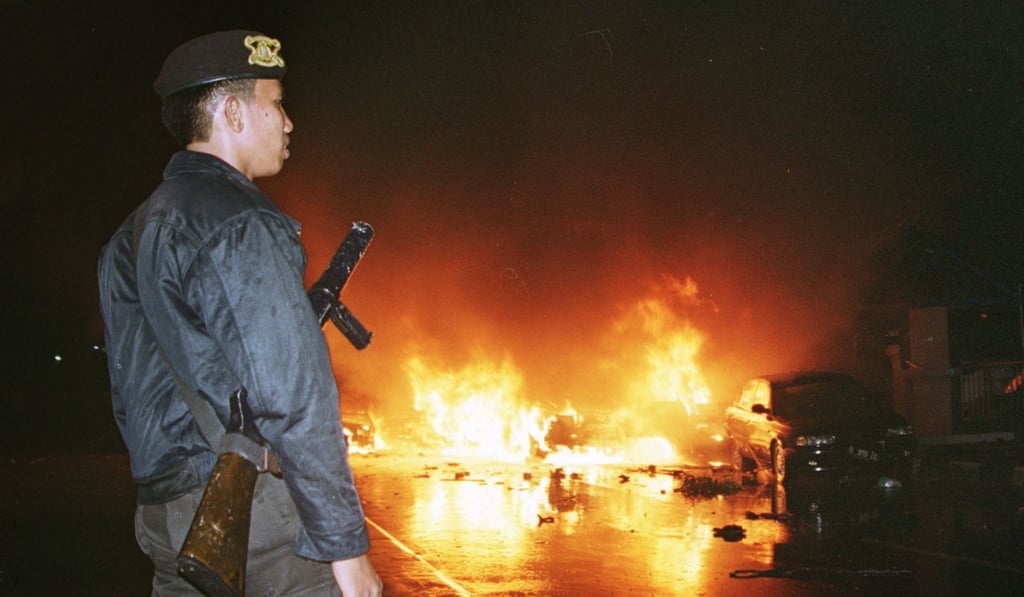Why a resurgent Jemaah Islamiah in Indonesia is also bad news for Malaysia and Singapore
- Little has been heard of the Southeast Asian offshoot of al-Qaeda for the past five years, but the arrest of JI leader Para Wijayanto reveals it is on the rise
- Self-funded with income from palm oil, and with a renewed focus on recruitment, experts warn that the group poses a renewed threat to the region

That was until last weekend. On Monday, Indonesian police announced the capture of JI’s leader Para Wijayanto, 54, who had been on the run since 2003. His wife and three of his associates were also detained.
[JI] is far more sophisticated, adaptable, capable of good organisation and exploiting issues
“JI has become stronger … it is far more sophisticated, adaptable, capable of good organisation and exploiting issues,” Sofyan Tsauri, former member of al-Qaeda Southeast Asia, told the Post. “JI can survive much better now.”
Tsauri was charged with logistics and weapons procurement during his time in al-Qaeda from 2005 until his arrest in 2010. He was released in 2015 and has since left the group.
THE RECOVERY
The term “neo-JI” is used to describe the organisation after it recovered from near destruction in 2007, when an armed clash with police in Poso, Central Sulawesi, led to the arrest of more than 40 members, including top leaders, according to a 2017 report by the Institute for Policy Analysis of Conflict (IPAC).
